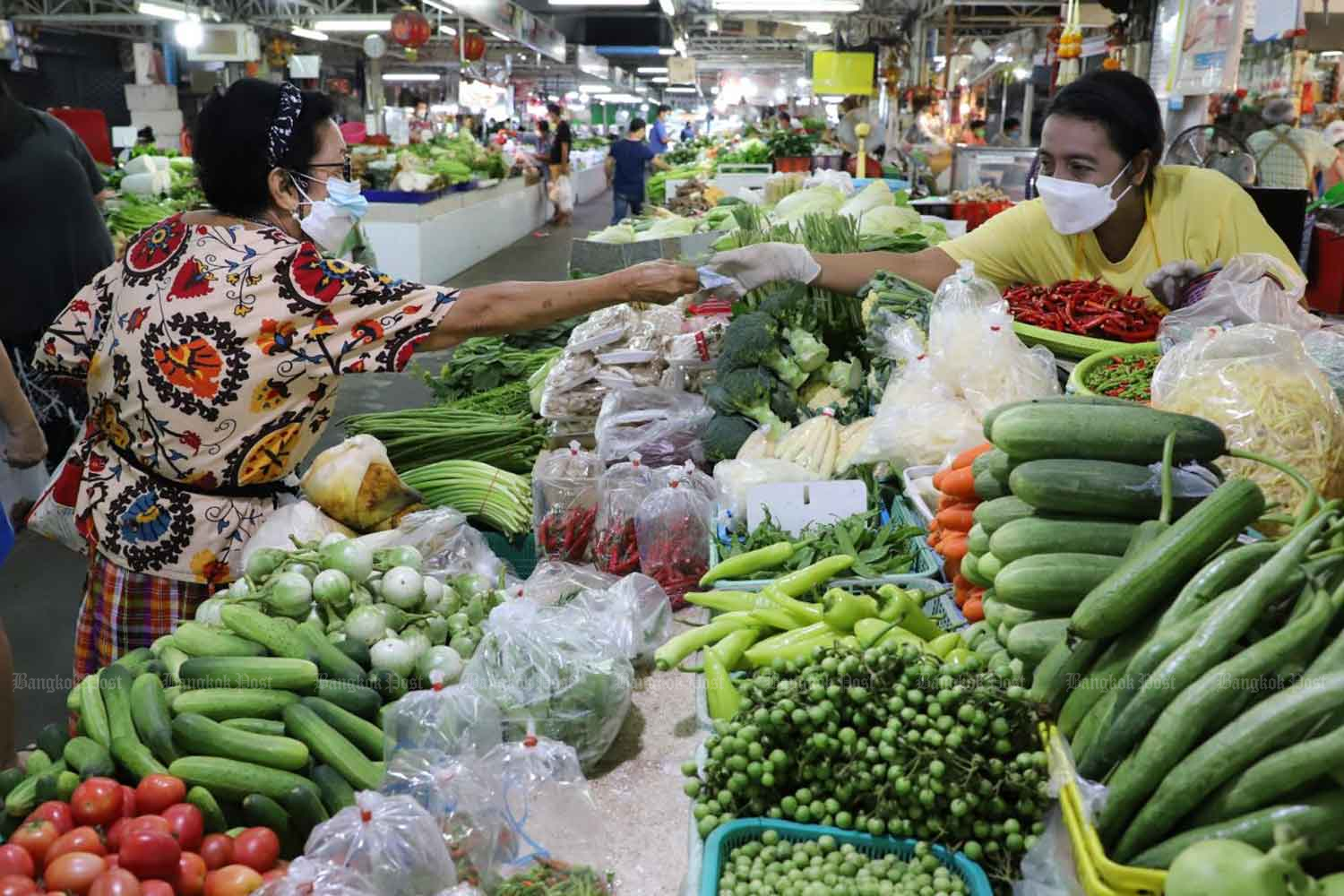
Consumer sentiment plunged for the fourth straight month in April, hitting the lowest level in eight months, as consumers remained concerned about rising costs of living and high oil prices caused by the impact of Russia's invasion of Ukraine.
The University of the Thai Chamber of Commerce (UTCC) reported on Tuesday the consumer confidence index fell to 40.7 in April from 42 in March, 43.3 in February and 44.8 in January.
It stood at 46.2 in December, 44.9 in November, 43.9 in October and 41.4 in September.
An index lower than 100 points reflects weak purchasing power based on a slow economic recovery.
Thanavath Phonvichai, president of the UTCC, said consumers were less confident and more cautious about spending because of growing concerns about rising costs of living and the impact of the Russia-Ukraine war, which might drive global oil prices and production costs to increase further.
Such negative factors could pressure the recovery pace of global economic growth and have negative effects on Thai exports and the overall economy in the future, he said.
According to Mr Thanavath, the continuous rise in oil prices and expensive product prices had adversely affected both present and future consumer sentiment.
The government is being urged to extend the "Khon La Khrueng" co-payment subsidy scheme in June to help shore up the domestic economy, particularly as consumer spending power remains fragile because of rising costs of living and higher oil prices.
The government initiated the scheme in October 2020, offering payment of 50% on food, drink and general goods purchases for participants, with the total subsidy limited to 150 baht per person per day.
The scheme aims to boost the economy and shore up consumer spending affected by Covid-19 outbreaks.
The fourth phase of the scheme ended on April 30.
The government has also been recommended to continue its energy subsidy scheme to cap retail diesel prices at 35 baht per litre to help reduce the cost of living.
"People say they are not able to handle continually rising product prices," he said.
"The government needs to move ahead with plans to fully reopen the country in order to draw money to help stimulate the economy."
More importantly, Mr Thanavath said consumers remain concerned about the persistent pandemic that still affects everyday life, business and the country's economy, especially the tourism and service sectors.
"The consumer mood remains fragile as they do not see signs of recovery in the near future because of a higher cost of living and rising oil prices, while Omicron variant infections persist," he said.
"We see the Thai economy as tending to slow down and have yet to see signs of recovery."